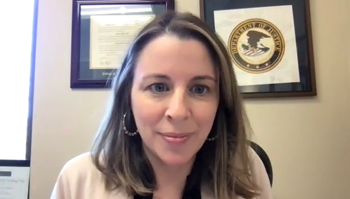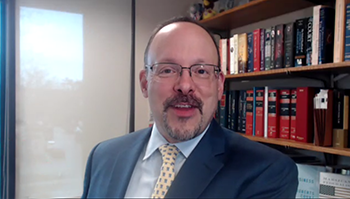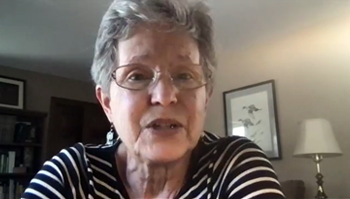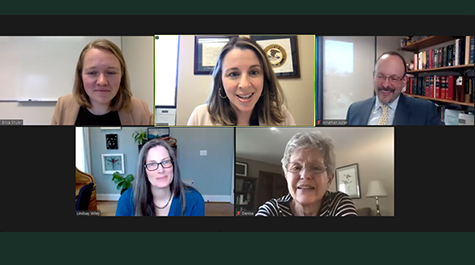Annual Koch Administrative Law Forum Examines the Supreme Court and Federal Vaccine Mandates
On Tuesday, March 1, William & Mary Law School hosted its annual Koch Administrative Law Forum. The lecture series, open to the public and held virtually again this year due to the Covid pandemic, is sponsored by the Institute of Bill of Rights Law and honors the legacy of Professor Charles H. Koch, an esteemed member of the William & Mary law faculty who passed away in 2012.
Professor Allison Orr Larsen served as moderator, with guest panelists Lindsay Wiley, a Professor of Law at the UCLA School of Law, and Jonathan Adler, the inaugural Johan Verheij Memorial Professor of Law and the founding Director of the Coleman P. Burke Center for Environmental Law at Case Western Reserve University’s School of Law, discussing two Supreme Court opinions involving federal vaccine mandates: National Federation of Independent Business v. Occupational Safety and Health Administration and Biden v. Missouri.
Wiley and Adler walked through the Court’s holdings in both cases. They explained how the Court recognized the Centers for Medicare and Medicaid Services’ statutory authority to require Medicare and Medicaid providers to vaccinate their staff against COVID-19, and rejected OSHA’s claimed statutory authority to require certain businesses to implement vaccine-or-testing requirements.
The professors emphasized several takeaways from the two cases; they discussed the current Court’s growing concern over agency attempts to rework statutes to fit new or unforeseen purposes. As Professor Adler explained, the Court is currently grappling with whether, and to what extent, it should inquire into an agency’s motivation for issuing a regulation.
They also discussed the relationship between two administrative law doctrines that were at play in the cases: the nondelegation and major questions doctrines.
Wiley noted that the pandemic coincided with a potential revival of the nondelegation doctrine and growth of the major questions doctrine. She recommended that in light of the arguments made challenging agency action in the pandemic, state and federal legislatures should craft statutes that clearly and specifically authorize the agency to act while leaving the agency with enough flexibility to respond to novel public health issues. She also noted this is easier said than done.
After the discussion, Wiley and Adler took questions from faculty and students in the audience.
Denise Koch, who with her son Andrew created the annual forum in honor of her late husband, attended the event and provided words of welcome. She serves as an adjunct instructor at the Law School, and has also created the Koch Endowment, which provides Koch Summer International Scholarships to law students. In November 2021, she was invested as an honorary alumna, a recognition given to select individuals for their extraordinary support and friendship to the Law School.
About the Koch Administrative Law Forum
Charles H. Koch was a national leader in the field of administrative law. The breadth of his work included authoring the multi-volume treatise on administrative law, Administrative Law and Practice. Professor Koch held several leadership positions in the Administrative Law section of the Association of American Law Schools and was active with the administrative law bar. His passion for Administrative Law lead to an interest in the European Union, as he foresaw its growing global importance in the legal environment and domestic law.
The Koch Administrative Law Forum grew out of an Administrative Law Symposium honoring Professor Koch in March 2013. Subsequent forums have examined “Administrative Agencies under the Trump Administration” (2017), “President Trump and the Administrative State” (2019) and “Administrative Law in Transition: Changes to Expect in the Biden Administration” (2021).
About William & Mary Law School
Thomas Jefferson founded William & Mary Law School in 1779 to train leaders for the new nation. Now in its third century, America's first law school continues its historic mission of educating citizen lawyers who are prepared both to lead and to serve.
